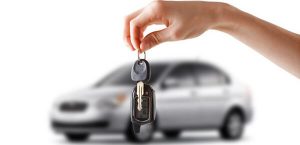Budgeting for Your Vehicle: Everything You Need to Know
 Whether you drive a beat-up old station wagon or zoom around town in a sporty Audi, there’s no denying that our cars are an integral part of our everyday lives. Without them, we would be limited to a much smaller radius in our daily activities and would spend much more time trying to figure out how to get from point A to point B. One of the most monumental days in all of our lives is when we finally earn a driver’s license and head to the local car dealership to purchase your very own vehicle. Most of us look back fondly on our first car and the good memories we had in that driver’s seat.
Whether you drive a beat-up old station wagon or zoom around town in a sporty Audi, there’s no denying that our cars are an integral part of our everyday lives. Without them, we would be limited to a much smaller radius in our daily activities and would spend much more time trying to figure out how to get from point A to point B. One of the most monumental days in all of our lives is when we finally earn a driver’s license and head to the local car dealership to purchase your very own vehicle. Most of us look back fondly on our first car and the good memories we had in that driver’s seat.
As exciting and necessary as it is to own a car, we often forget about some of the costs behind them. We all know how frustrating it is to have to fill up on gas and watch your car guzzle away your money. It’s widely understood that before buying a car you really need to spend some time saving up and take a look at your budget before making this serious decision. But what costs do we often forget about when it comes to our cars? Take a look at the list below and make sure that you’re planning ahead when it comes time to allocate funds to your car budget.
Auto Insurance
Depending on where you live, your car insurance can really make a dent in your monthly income. Average rates can range from $75 a month to over $200 a month. It’s important when factoring in how much you can afford on a monthly car payment to remember that you will be making other monthly payments for this purchase as well. This isn’t an expense you want to skip out on because things happen that you cannot predict.
Car Accidents
One of the main reasons you will need auto insurance is because, no matter how carefully you drive, you will likely get into at least one car accident in your lifetime. In fact there are over 6 million car accidents each year in the US. If you find yourself in an unexpected accident, you will likely be dishing out a few extra dollars that month.
Property Tax
Most states require you to pay a property tax on large items such as cars. This amount can vary, but it is usually dependant on the value of your vehicle. The rate is based upon the blue book value of your car, or the amount you could make if you sold it to a dealer.
Parking (tickets and passes)
Once you have your car, you’ll likely be driving it to public areas where you will have to pay for parking. This is especially typical if you live in a larger city. Parking prices can be exorbitant at special events and hot spots, but the worst part is when you don’t follow parking rules and thus are given a parking ticket. Be sure that wherever you park your car, you are reading the signs and following the guidelines laid out for you to avoid these unexpected costs.
Maintenance
All cars will have to undergo maintenance at some point. Think of your car as a person. Sometimes, people get sick no matter how well they take care of their bodies. Maintenance can be something small (like needing to replace a headlight or air filter) or something much larger (such as replacing the converter). Always make sure you have some extra cash laid aside for these repairs.
Next time you’re in the market for a new car, plan out all of the costs associated with this big purchase. Buying a car is extremely exciting and a large decision, so don’t make a hasty selection that you cannot afford.
About Andrew
Andrew is a corporate finance consultant living in Los Angeles, specializing in distressed and bankrupt consulting. He helps clients review business plans and the general market and decide what steps to take next. He has a masters in finance. Andrew enjoys running and biking in the San Gabriel mountains, cheering for the San Francisco Giants and eating (but trying not to gain weight).







